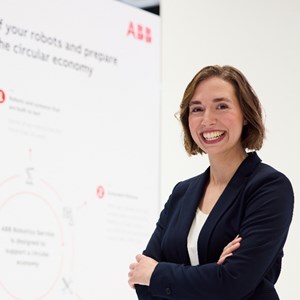2022 is the European Year of Youth. To celebrate this occasion, CEN and CENELEC decided to launch campaign that will run in the coming months, presenting a series of young professionals active in European standardization. In the first episode of the series, we get to know Kevin Carta, from France.
1. Please, present yourself.
I am 24 years old, and I come from France. I have generalist engineering degree and I am currently a PhD student on the topic of security of facial recognition. I have also been working for a French security laboratory called Cabinet Louis Reynaud Labs (CLR Labs) since 2019, when I started as an engineer traineeship in Brussels. Since then, I have been developing evaluation methodologies for assessing fingerprint recognition, facial recognition, and mobile application security.
2. Could you explain a bit more in detail how you are involved in standardization, and what its value for your field of expertise is?
I’m currently editor of a New Work Item on the subject of Injection Attacks Detection for biometric system as part of the CEN-CENELEC/TC 224/WG18. This topic is highly important: we are more and more using remote solutions, and new threats against the security of biometric systems keep on appearing. Among them, injection attacks are particularly sensitive.
For this reason, being active on this topic allows me to help the whole biometric community - which to be honest is not really aware about the seriousness of these challenges - to improve their security and thus protect European citizens from fraudsters who could steal their identity for illegal activities.
3. Why and how did you become interested in standardization?
I was first involved in standardization thanks to Patrice Plessis, who is one of my mentors and is currently retired. Patrice was chair of the CN CSA at AFNOR (Expert Group dealing with travel documents) and represented France at ISO/IEC SC17 and ICAO NTWG expert groups for around 30 years on the topics of travel documents, smart cards, driving licences, etc. When I arrived at CLR Labs, Patrice taught me how border control is managed and explained me how strategic standardization is in the industrial world.
Just like that, Patrice helped me become interested in standardization. He explained to me that the most important thing in industry is to read the documents and the standards, as not many people read the documents for real, and it may be more and more true as time goes by. With this statement, I immediately understood the power of standardization: in my opinion, you are taking a huge advance on your opponents if you are part of the discussion on the standard which will rule the market, and even more if you are the editor.
The second argument which made me interested in standardization is the idea of being able to defend European values. In my domain, the protection of personal data is highly important to preserve our individual liberties, and thus standardization can be a way to push European values at international level.
4. What is the best advice your mentors gave you?
One of my mentors, as I explained above, was Patrice Plessis. The best pieces of advice he gave me was to fully read the documents, and to stay “understated”, as our English friends like to say.
Furthermore, I also would like to mention Stéfane Mouille: he is my first mentor and the person who follows me daily at CLR Labs. Stéfane has also been involved in standardization for 20 years, working on Digital Identity subjects, and he has been the most important person in my career, supporting me every day and following me on this standardization journey. The most important thing that Stéfane told me is to not be intimidated and to not hide my young age.
5. Do you think standardization (in particular, at the European level) provides some added value for your career development?
Yes, it does! The most important thing in a career is to create a network. Being in expert groups provides you with the opportunity to be in touch with a big variety of experts from other countries, and also with institutions.
Moreover, being in standardization gives you the opportunity to travel – of course at least when COVID allows you to… As a consequence, I have the chance to be in connection with people of different cultures, which sometimes helps me take a step back on a topic and go beyond established patterns of thoughts I would have.
6. Why should there be more young people in standardization? What advice would you like to tell your fellow young professionals to invite them into the world of standardization?
There should be more young people in standardization because it’s a sector where you will learn soft skills which are hard to find elsewhere. In my point of view, companies and institutions should do more to integrate young people (and even people in general) in expert groups, as standardization is a way to improve living conditions for everyone. And thus, injecting young blood in standardization would help to give a punchy approach to standardization activities.
As piece of advice, I would recommend young professionals to look at standards and to try to explain to their managers the strategic relevance of standardization, to make them interested to get involved in standardization.
You can follow the rest of the campaign and read the other interviews to our Young Professionals in Standardization here.
Join the conversation through the hashtag #EuropeanYearOfYouth




